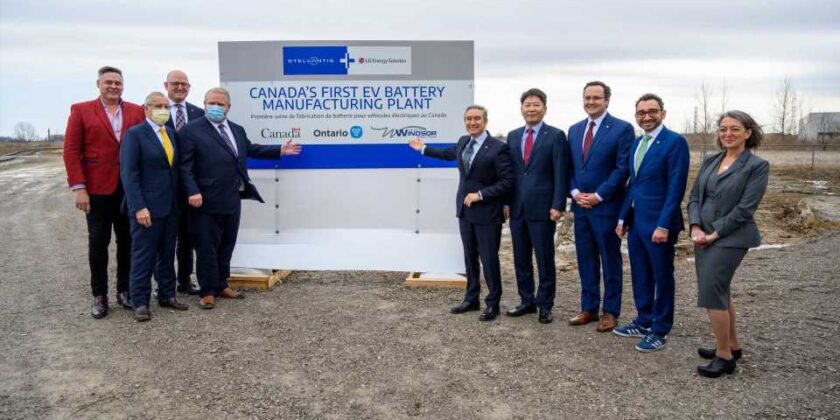Stellantis and its battery joint venture partner LG Energy Solution stopped construction of their planned EV battery factory in Canada amid a dispute with the federal government over support for the $3.7 billion plant.
The Franco-Italo-American carmaker is accusing Canada of not keeping its side of the bargain regarding the plant in Windsor, Ontario.
“As of today, the Canadian Government has not delivered on what was agreed to therefore Stellantis and LG Energy Solution will begin implementing their contingency plans. Effective immediately, all construction related to the battery module production on the Windsor site has stopped,” Stellantis said in a May 15 statement to Reuters.
Stellantis previously said the battery cell plant, which is estimated to cost $3.7 billion (5 billion Canadian dollars) to build, will be able to produce 45 gigawatt-hours (Gwh) of lithium-ion cells and modules a year for its EV assembly operations in Canada and the US, creating some 2,500 new jobs.
The site was designed to assemble both cells and modules in two different sections. At the moment, framing of the module portion of the factory is partially complete, while construction of the cells section of the facility is in the early stages. Stellantis said some construction related to battery cell production continues on the 220-acre site.
Stellantis COO Mark Stewart at the March 2022 announcement of the battery cell plant in Windsor, Ontario
When the plant was announced in March 2022, Canada’s Innovation Minister Francois-Philippe Champagne described the deal as the largest ever in the Canadian auto sector. The project included about $1.1 billion (1.48 billion Canadian dollars) from LG Energy Solution and undisclosed contributions from federal and provincial governments.
A spokesperson for Champagne said, “We continue to negotiate in good faith with our partners. Our top priority is and remains getting the best deal for Canadians,” according to Automotive News Canada.
Finance Minister Chrystia Freeland said Canada was having “good discussions” with Stellantis, after a newspaper reported that automaker was looking for better government subsidies than originally offered by Ottawa.
According to a May 11 report from The Toronto Star newspaper, Stellantis is now threatening to pull the plug on the module portion of the plant unless Canada offers a deal similar to the one Volkswagen received this year.
VW Group’s battery gigafactory in St. Thomas, Ontario, worth up to $10 billion (13 billion Canadian dollars) in incentives, is the biggest single investment ever in the country’s EV supply chain. The Canadian government has committed to provide up to $9.8 billion (13.2 billion Canadian dollars) in manufacturing tax credits through 2032, while Volkswagen is investing up to $7 billion to build the plant.
Source: Reuters via Automotive News Canada
Source: Read Full Article

